Photos: The Changing Bright Spots of Dwarf Planet Ceres
Occator Crater with Ceres' Bright Spots
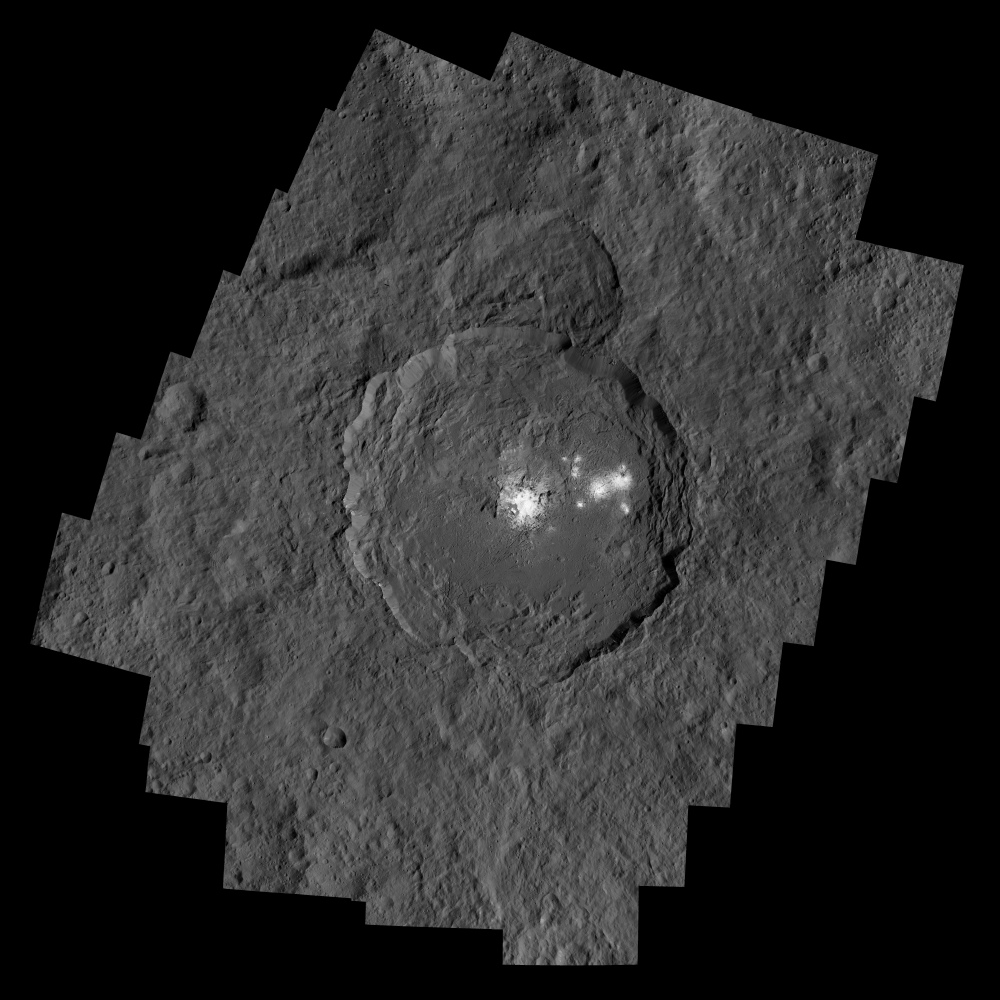
NASA's Dawn spacecraft recently saw the mysterious bright spots on dwarf planet Ceres in the highest resolution photos yet. See changes in Ceres' bright spots in this gallery of new images. HERE: Occator Crater on Ceres, which stretches 57 miles (92 kilometers) across and delving 2.5 miles (4 kilometers) deep, is home to the mysterious brightest area on dwarf planet Ceres. Image released March 22, 2016. Read the full story of Ceres' changing spots.
Enhanced Color Global Map of Ceres
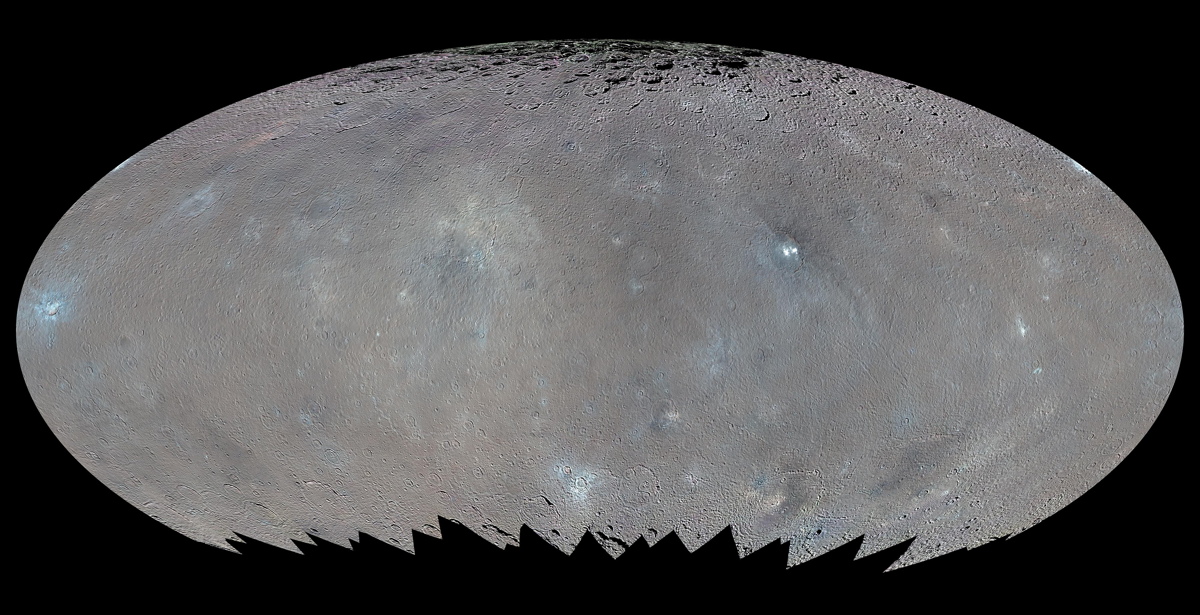
The surface of Ceres appears in this global map made with enhanced color, including infrared wavelengths outside human visual range. Image released March 22, 2016. Read the full story of Ceres' changing spots.
Ceres' Haulani Crater
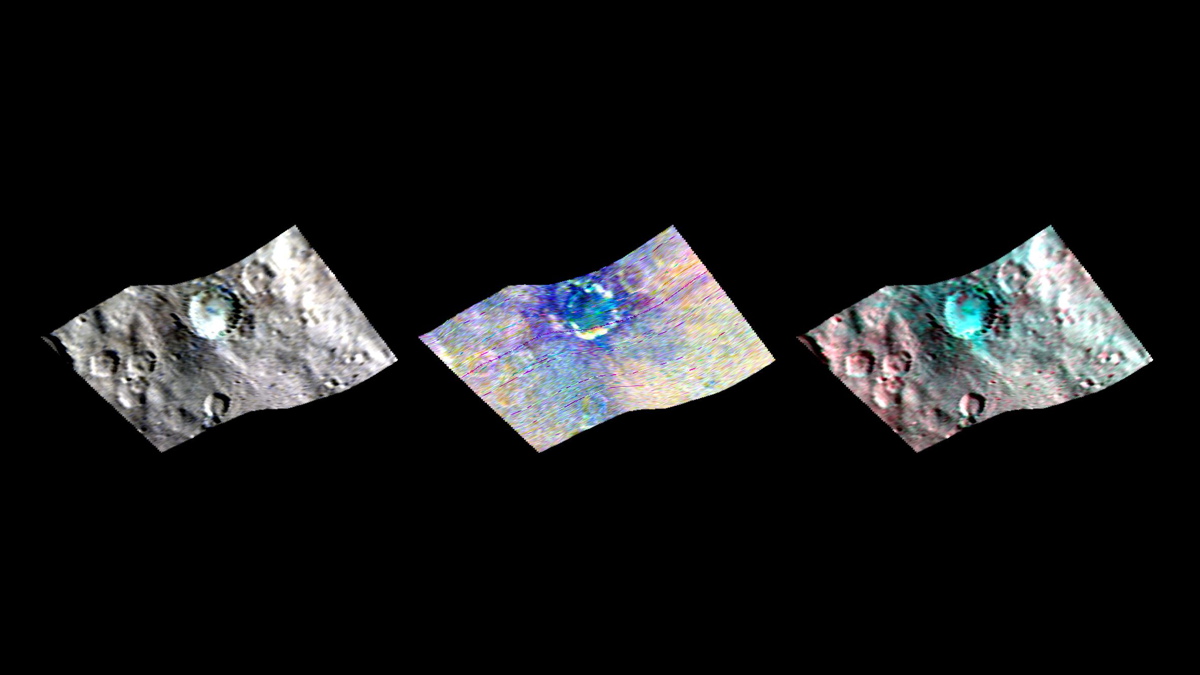
NASA's Dawn spacecraft used its visible and infrared mapping spectrometer (VIR) observed Ceres' Haulani Crater (21 miles, 34 kilometers wide). Read the full story of Ceres' changing spots.
Ceres Neutron Counts
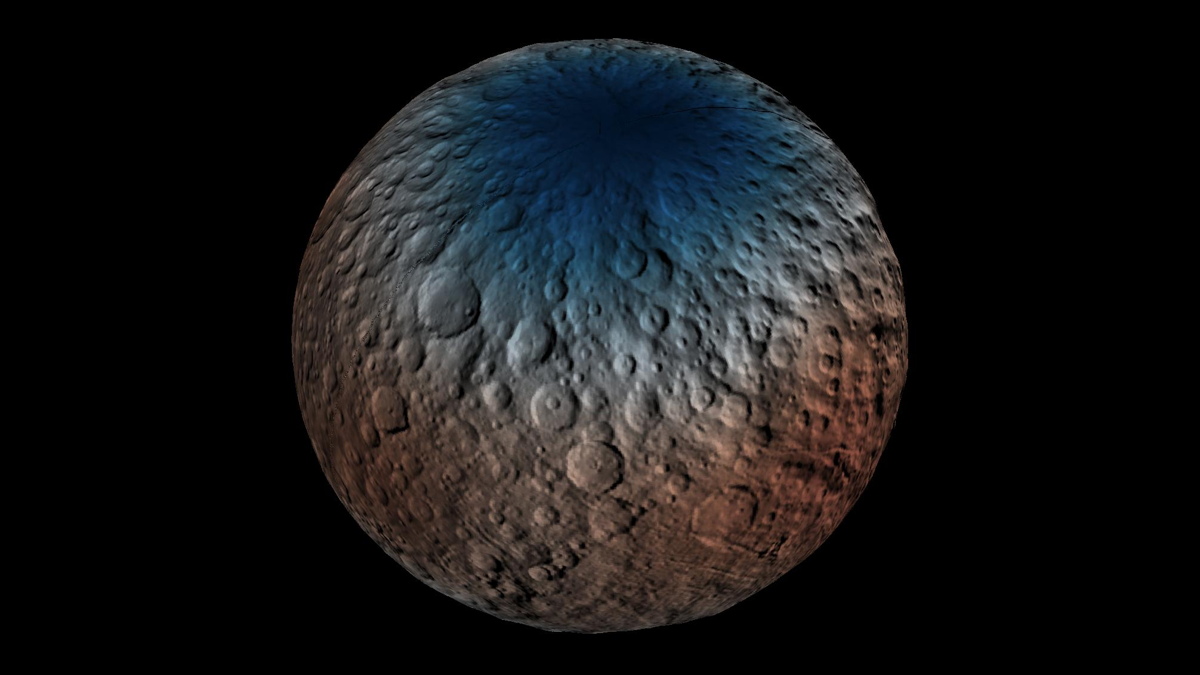
A portion of the northern hemisphere of dwarf planet Ceres appears in this map, which includes neutron counting data acquired by the gamma ray and neutron detector (GRaND) instrument aboard NASA's Dawn spacecraft. Blue indicates lowest neutron count, and, at the other end of the scale, red indicates the highest neutron count. Read the full story of Ceres' changing spots.
Colorized Map of Ceres (Mercator Projection)
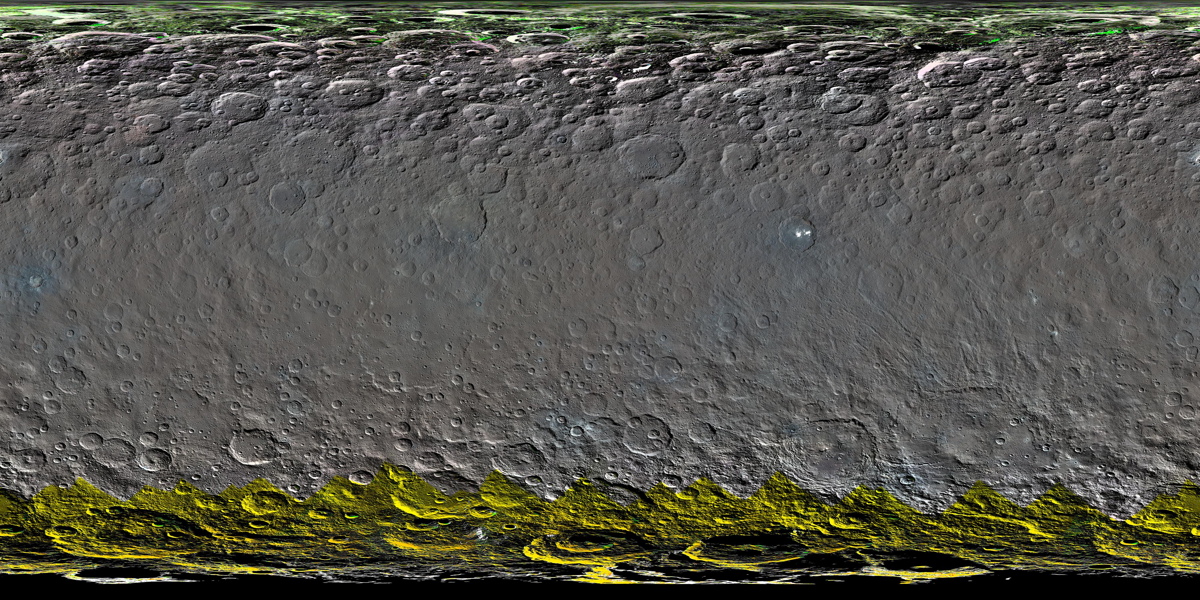
Researchers used a clear-filter mosaic to make this colorized global map of Ceres. The map had color added using spectral data from other observations of Ceres (calculated using a color transformation program). The green and yellow areas at high latitudes show where Dawn's color imaging coverage remains incomplete. Read the full story of Ceres' changing spots.
Center of Occator Crater in Enhanced Color
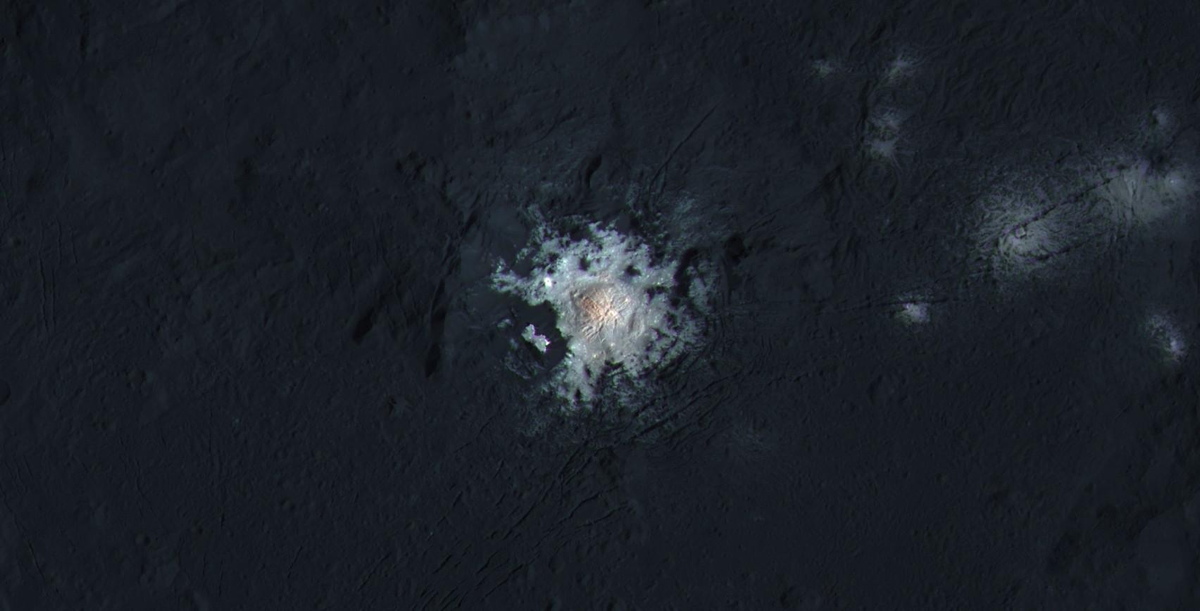
The bright spots in Occator Crater on dwarf planet Ceres appear here with enhanced color, in a view from NASA's Dawn spacecraft. Read the full story of Ceres' changing spots.
Ceres LAMO Coverage Map
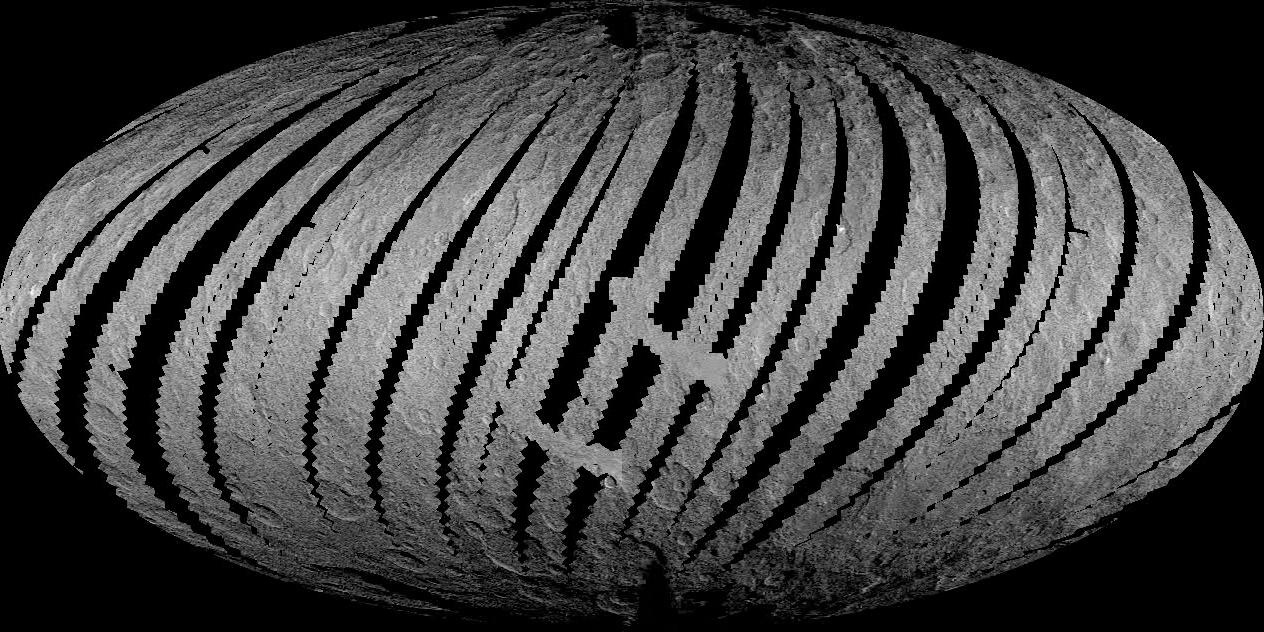
This still from an animated video shows Dawn mission's imaging coverage of dwarf planet Ceres during its low-altitude mapping orbit, 240 miles (385 kilometers) above the surface. Read the full story of Ceres' changing spots.
Get the Space.com Newsletter
Breaking space news, the latest updates on rocket launches, skywatching events and more!
Ceres Occator Crater Bright Spot
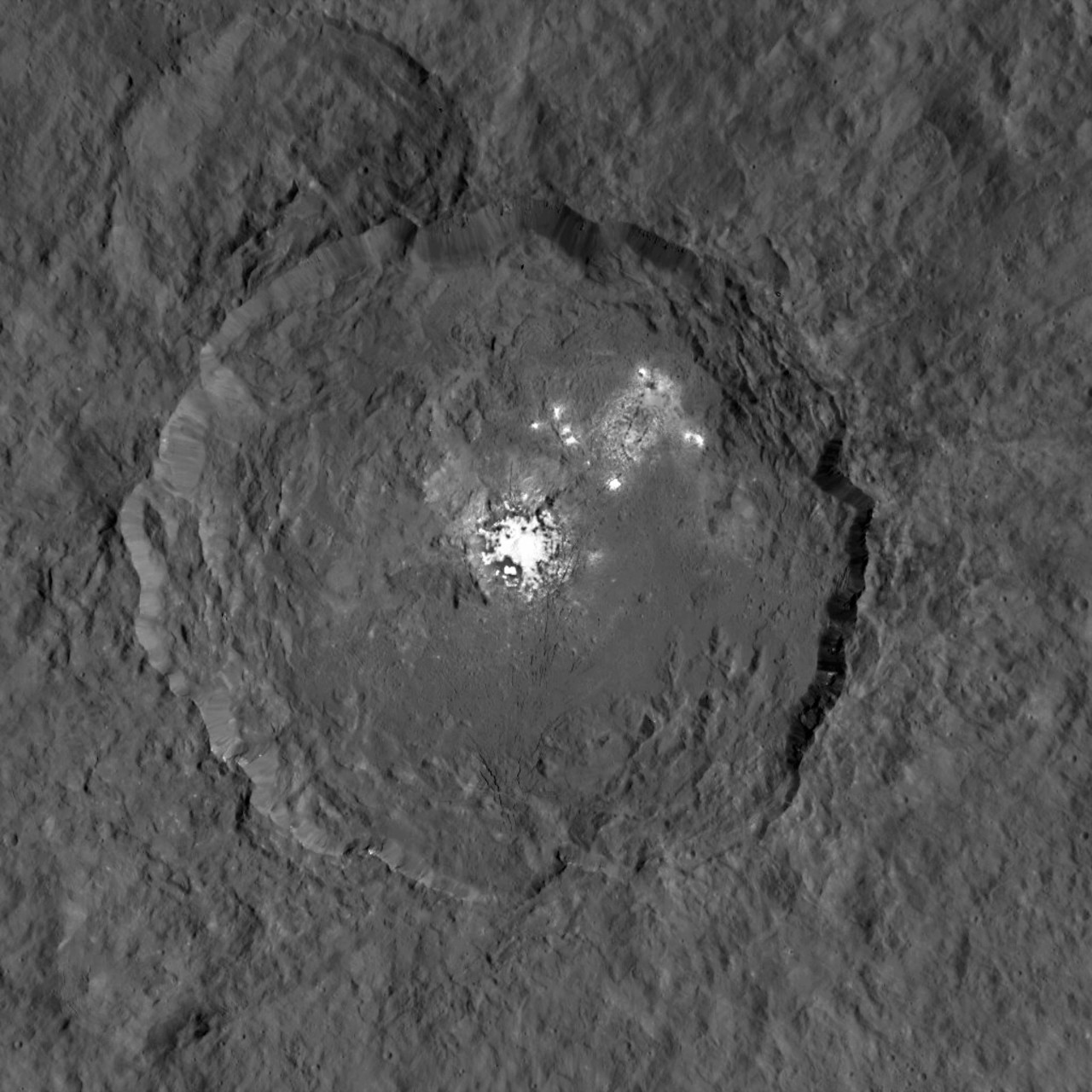
A close-up view of a strange bright spot in Occator crater on the dwarf planet Ceres, as seen by NASA's Dawn spacecraft. Observations of from ground-based telescopes suggest the spots undergo daily changes.
False-Color View of Occator Crater
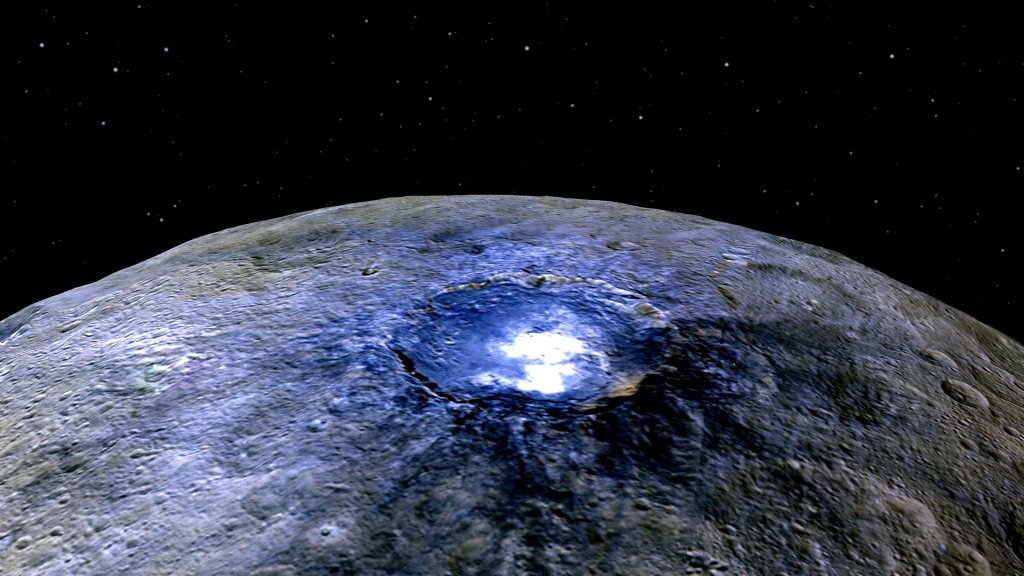
False-color view of Occator Crater showing differences in surface composition. Red corresponds to a wavelength range around 0.97 micrometers (near infrared), green to a wavelength range around 0.75 micrometers (red, visible light) and blue to a wavelength range around 0.44 micrometers (blue, visible light). These images were captured by NASA's Dawn spacecraft from a distance of 2,750 miles (4,450 kilometers)
Ceres' Occator Crater Haze
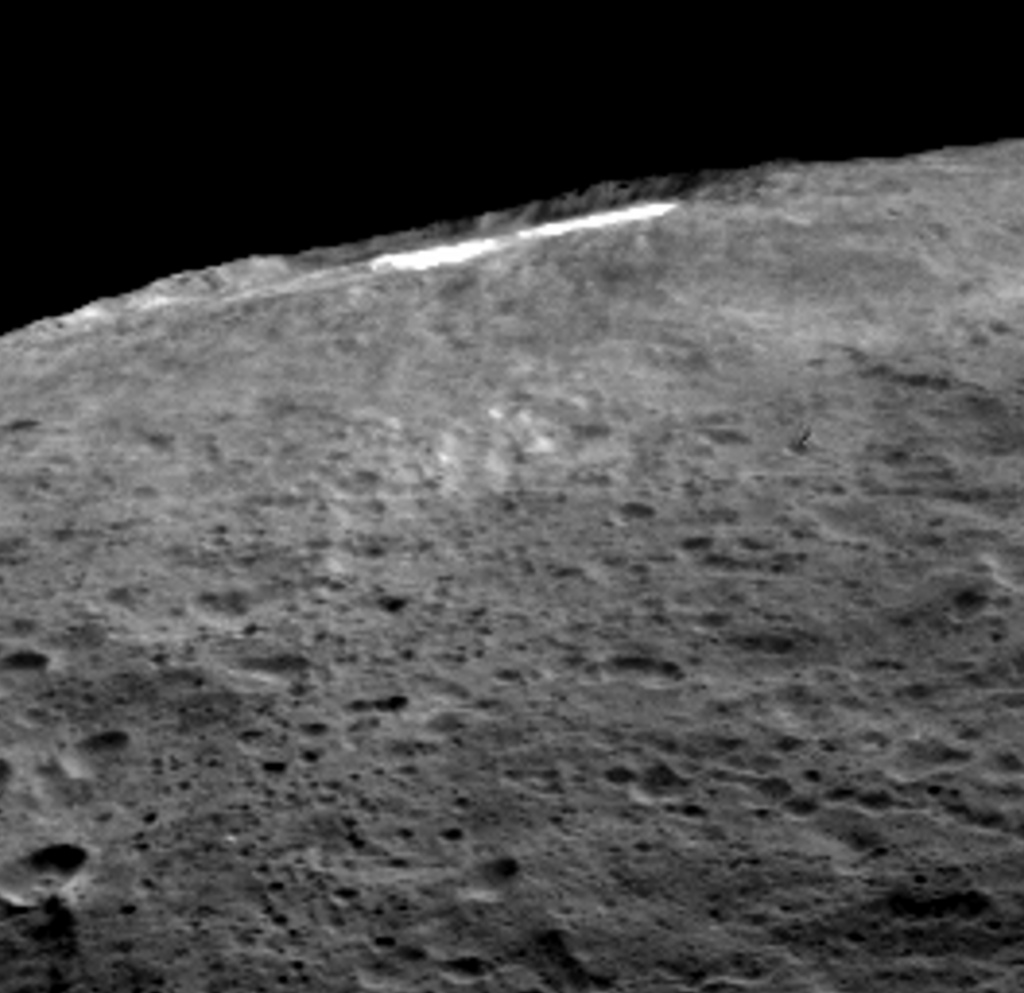
When sunlight reaches Ceres' Occator Crater, a kind of haze of dust and evaporating water forms there. This haze can only be discovered by looking at it laterally, as has been done here.
Ceres Illustration - Dawn Data
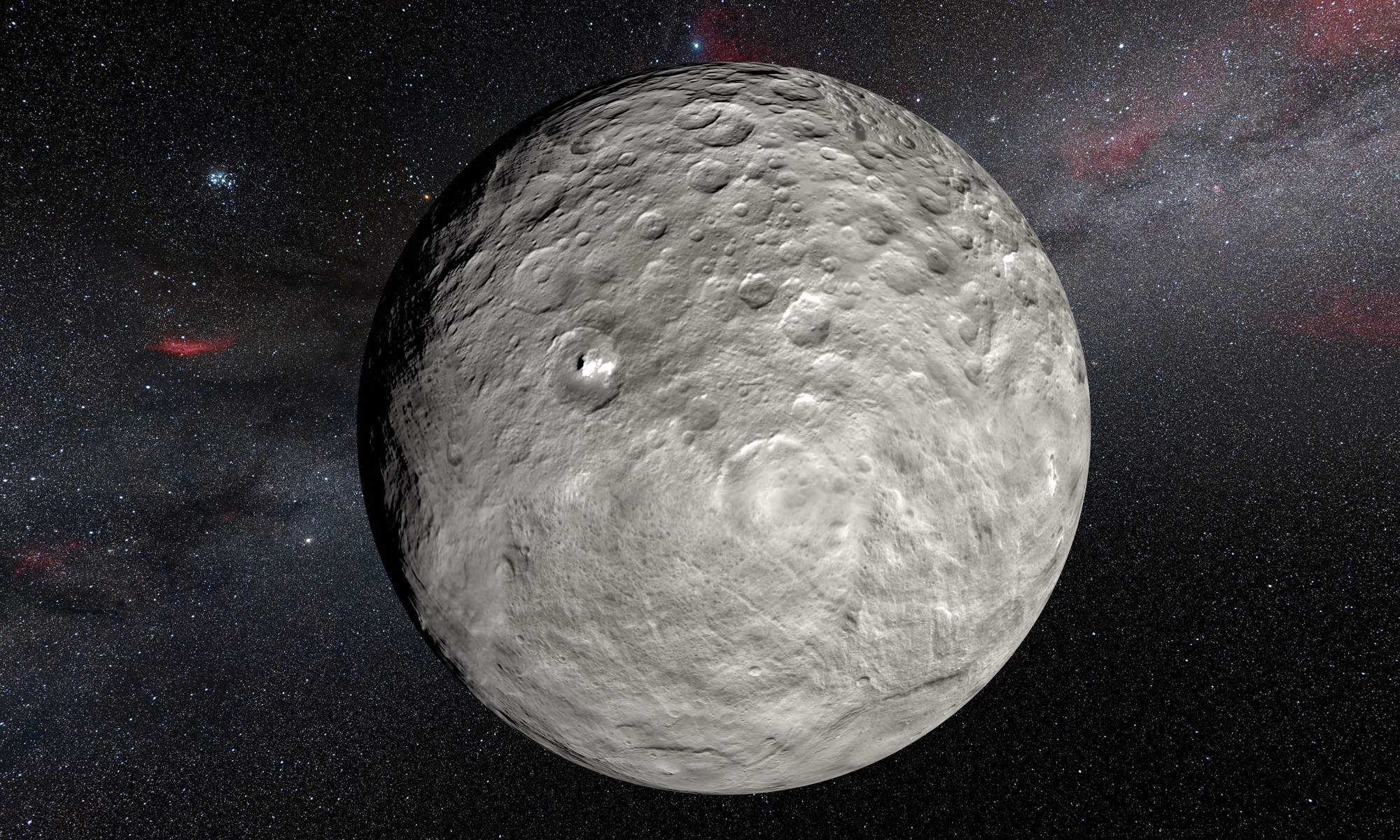
An artist's illustration of Ceres based on mapping and observations from NASA's Dawn spacecraft currently orbiting the dwarf planet in the Asteroid Belt.
Join our Space Forums to keep talking space on the latest missions, night sky and more! And if you have a news tip, correction or comment, let us know at: community@space.com.

Space.com is the premier source of space exploration, innovation and astronomy news, chronicling (and celebrating) humanity's ongoing expansion across the final frontier. Originally founded in 1999, Space.com is, and always has been, the passion of writers and editors who are space fans and also trained journalists. Our current news team consists of Editor-in-Chief Tariq Malik; Editor Hanneke Weitering, Senior Space Writer Mike Wall; Senior Writer Meghan Bartels; Senior Writer Chelsea Gohd, Senior Writer Tereza Pultarova and Staff Writer Alexander Cox, focusing on e-commerce. Senior Producer Steve Spaleta oversees our space videos, with Diana Whitcroft as our Social Media Editor.









